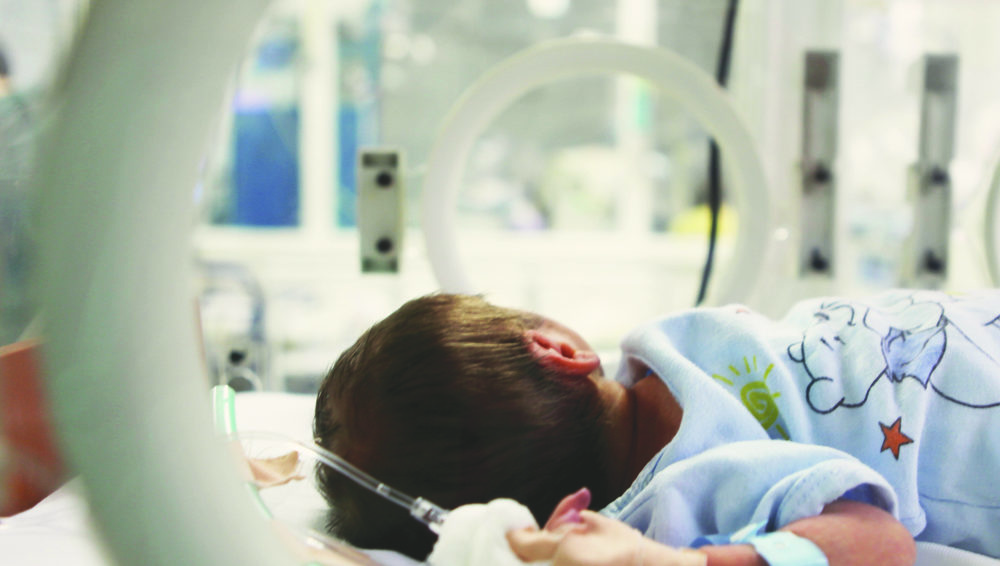11 potential complications of Premature birth
Insights

If a baby is born prematurely, the child can face many risks.
For parents, there are often additional costs, as the child may need special medical care.
Premature birth
Premature or preterm birth is when a baby is born before the beginning of the 38th week of pregnancy. Babies born prematurely usually have underdeveloped organ systems and are predisposed to various risks and developmental problems, including permanent disability and even death. The earlier a baby is born, the higher the risk of serious health issues.
A premature baby typically has a small size, with a disproportionately large head. They have low birth weight, lack subcutaneous fats, and may have lanugo hair covering most of the body.
11 Short-term health risks premature babies face
Here are the common short-term complications preterm babies face:
- Breathing problems: Premature babies have a poorly developed respiratory system. Their lungs may not have enough surfactant — a substance that prevents the lungs from collapsing during expiration — so they may develop respiratory distress syndrome. Some preterm babies also have apnea.
- Bronchopulmonary dysplasia (BPD): This is a form of chronic lung disease that affects newborns born prematurely. While most infants recover from BPD, some may have long-term breathing difficulties.
- Heart problems: Premature babies are often at risk of having patent ductus arteriosus (PDA), where there is a persistent opening between the two major blood vessels leading from the heart, and low blood pressure (hypotension).
- Brain problems: Premature babies have a higher risk of intraventricular hemorrhage — bleeding in the ventricles of the brain. While most of such bleedings are mild and resolve with little short-term effect, some may be severe and cause permanent brain injury.
- Temperature control problems: Premature babies do not have subcutaneous fat and cannot generate enough energy to counterbalance what is lost via the skin. As a result, they can lose body heat rapidly.
- Hypothermia: This occurs when a premature baby’s temperature dips too low, leading to an abnormally low core body temperature. Hypothermia in a premature baby can lead to breathing problems and low blood sugar levels.
- Gastrointestinal problems: The gastrointestinal systems of some premature babies are poorly developed. This can lead to complications, such as necrotizing enterocolitis (NEC).
- Anemia: Premature babies are at risk of anemia as they take longer to make red blood cells. This can be caused by a lack of iron or other nutrients in the baby’s blood, an infection, or a problem with the blood-forming cells.
- Jaundice: This yellow discoloration in a baby’s skin and eyes results from excess bilirubin, a yellow-colored substance derived from the breakdown of red blood cells. Jaundice is more common in preterm babies.
- Metabolism problems: Premature babies can have problems with metabolism and may develop hypoglycemia — an abnormally low level of blood sugar.
- Immune system problems: The immune system of a premature baby is poorly developed. This predisposes them to a higher risk of infection and sepsis — an infection that spreads to the bloodstream.
Long-term health risks premature babies face
Apart from the short-term complications, preterm babies face many long-term health risks. Some of them include:
- Developmental delay
- Lower performance in school
- Cerebral palsy
- Impaired learning
- Vision problems
- Hearing problems
- Dental problems
- Behavioral and psychological problems
- Chronic health issues
Effects of premature birth on the mother and family
Preterm birth can also affect the mother and family. Mothers with preterm births may have negative feelings about their babies in the early months after birth. They are at increased risk of ill health, depression, and anxiety disorders.
At the family level, having a preterm birth can mean additional costs because the baby may need special medical care. A family with inadequate resources may find it difficult to cope. One way to reduce potential costs is to carefully check the fees a hospital charges, say for each day in an incubator. Public hospitals are often cheaper than private ones, but changing the hospital after birth is often difficult. This means that you might want to think of a second option, in case your child comes prematurely.
Risk factors for premature birth
There is usually no specific cause of premature birth, but a lot of factors are known to predispose mothers to premature delivery. Some of those factors include:
- Multiple miscarriages or abortions
- Previous premature birth
- An interval of fewer than six months between pregnancies
- Conceiving through in vitro fertilization
- Pregnancy with twins, triplets, or other multiples
- Problems with the uterus, cervix, or placenta
- Smoking cigarettes, drinking alcohol, or using illicit drugs
- Certain infections, especially ones affecting the amniotic fluid and lower genital tract
- Being underweight or overweight before pregnancy
- Stressful life events, such as the death of a loved one or domestic violence
- Some chronic conditions like high blood pressure and diabetes
- Physical injury or trauma
How to prevent premature birth
While the exact cause of preterm birth is not known, here are some things that can be done to reduce the chances of preterm delivery in women who are at high risk:
- Progesterone supplements: Doctors may prescribe progesterone supplements for women at risk of preterm delivery.
- Cervical cerclage: Cervical cerclage, also known as a cervical stitch, is a procedure done during pregnancy in which the doctor uses a strong stitch to close the cervix to provide extra support to the uterus. It can benefit women with a short cervix or a history of cervical insufficiency which results in preterm birth. A cervical pessary can also be an alternative option for cervical stitch.
If you are concerned about delivering your baby prematurely, talk to your doctor or healthcare provider about it. If your cervix is short, a cervical cerclage can reduce that risk.
Verified:
Dr. Wanwadee Sapmee Panyakat (OB-GYN) (1 June 2022)



